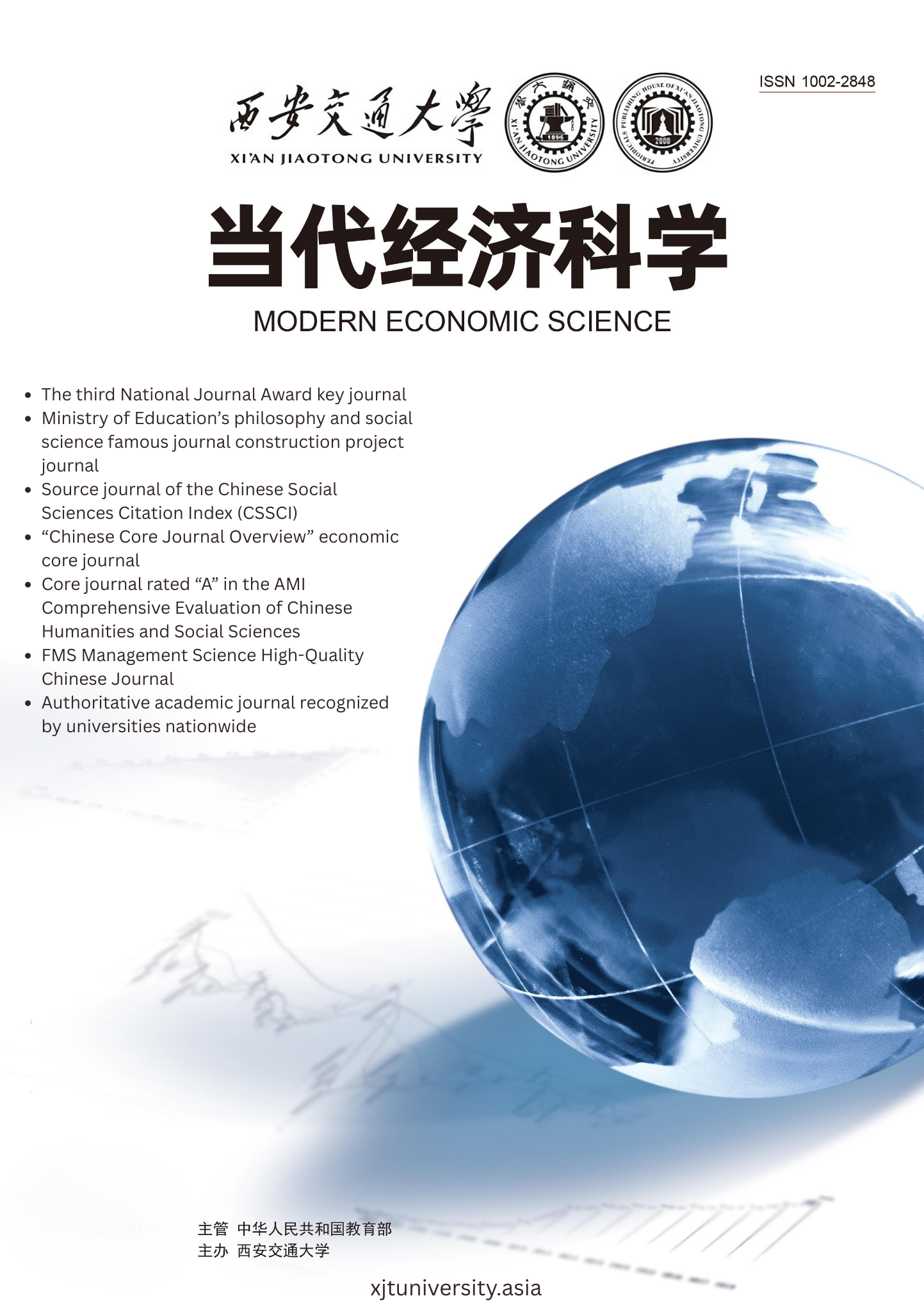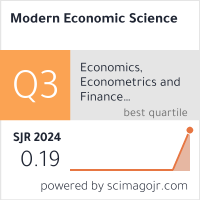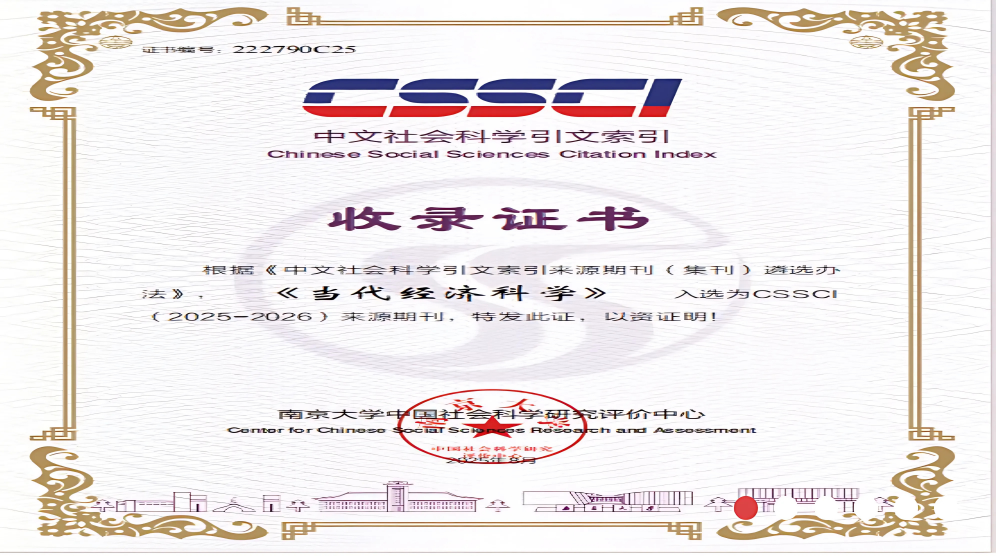Digital Transformation in the Market Competitive Environment: Impact of Enabling Enterprise Innovation
DOI:
https://doi.org/10.20069/ceskzh13Keywords:
market power, digital transformation, corporation’s innovation output, market environment, the paradox of digitizationAbstract
In the context of the rapid advancement of the digital economy and its deep integration with the real economy, enterprise digital transformation emerges as a pivotal force driving sustainable innovation. Nonetheless, this transformation encounters significant challenges, notably the “transformation dilemma of digital” and the “innovation paradox of digital”, impeding both digital transformation and innovation within enterprises. Existing literature has overlooked the influence of market environments on enterprise digital transformation while predominantly focusing on its enabling effects rather than considering its potential burdens.
This paper addresses these gaps by constructing a theoretical framework that elucidates the interplay among market power, digital transformation, and innovation. It demonstrates the phenomenon of reduced innovation caused by excessive digital transformation in the market power. Through empirical analysis using data from Shanghai and Shenzhen A-share manufacturing companies spanning from 2007 to 2021, the study examines the nonlinear indirect effect of enterprise digital transformation on the relationship between market power and innovation output. Results indicate that while market power facilitates digital transformation, excessive transformation can hinder innovation output, with an optimal inflection point for innovation empowerment. We show that digital transformation indirectly impacts the influence of market power on innovation output. Specifically, companies with greater market power can achieve digital transformation more efficiently and rapidly. However, excessive digital transformation can impose burdens and impede innovation output within enterprises. Further analysis demonstrates that government interventions adjust the nonlinear relationship between digital transformation and innovation empowerment to varying extents through industrial support and property rights mechanisms.
Contributions of this research include expanding the endogenous growth model to incorporate the digital decision index, thereby demonstrating the nonlinear relationship between digital transformation and innovation performance within market structures. Moreover, it offers the first empirical evidence of the impact of enterprise market power on digital transformation decisions and tests the innovation paradox with a substantial sample size. Furthermore, the study highlights the guiding role of government functions, providing insights for policy formulation to address barriers to digital transformation and foster innovation.
Overall, this paper provides a theoretical basis for the scientific understanding of the relationship between market structure, digital transformation, and innovation performance. Its findings enrich the literature on industrial organization and digital transformation, offering practical implications for improving market structures and facilitating the deployment of innovation strategies in industrial digital transformation. It provides valuable guidance for policymakers to navigate enterprise digitalization challenges and alleviate digital and innovation insufficiencies resulting from intense competition.
Downloads
References
[1] 史宇鹏, 王阳, 张文韬. 我国企业数字化转型: 现状、问题与展望 [J]. 经济学家, 2021(12): 90-97.
[2] 姚小涛, 亓晖, 刘琳琳, 等. 企业数字化转型: 再认识与再出发 [J]. 西安交通大学学报(社会科学版), 2022(3): 1-9.
[3] HAI JIM, JULIAN MS, IBRAGIMOV V. Information technology (IT) productivity paradox in the 21st century [J]. International Journal of Productivity & Performance Management, 2015, 64(4): 457-478.
[4] 唐要家, 王钰, 唐春晖. 数字经济、市场结构与创新绩效 [J]. 中国工业经济, 2022(10): 62-80.
[5] 范猛, 张云, 李宝伟. 数字金融对市场垄断的影响: 数字红利还是强者恒强 [J]. 当代财经, 2022(11): 65-75.
[6] 唐浩丹, 方森辉, 蒋殿春. 数字化转型的市场绩效: 数字并购能提升制造业企业市场势力吗? [J]. 数量经济技术经济研究, 2022(12): 90-110.
[7] 余菲菲, 曹佳玉, 杜红艳. 数字化悖论: 企业数字化对创新绩效的双刃剑效应 [J]. 研究与发展管理, 2022(2): 1-12.
[8] 庞瑞芝, 刘东阁. 数字化与创新之悖论: 数字化是否促进了企业创新: 基于开放式创新理论的解释 [J]. 南方经济, 2022(9): 97-117.
[9] PORTER M E, HEPPELMANN J E. How smart connected products are transforming companies [J]. Harvard Business Review, 2015, 93(10): 97-114.
[10] SAARIKKO T, WESTERGREN U H, BLOMQUIST T. Digital transformation: five recommendations for the digitally conscious firm [J]. Business Horizons, 2020, 63: 825-839.
[11] 戚聿东, 肖旭. 数字经济时代的企业管理变革 [J]. 管理世界, 2020(6): 135-152.
[12] 袁淳, 肖土盛, 耿春晓, 等. 数字化转型与企业分工: 专业化还是纵向一体化 [J]. 中国工业经济, 2021(9): 137-155.
[13] 吴非, 胡慧芷, 林慧妍, 等. 企业数字化转型与资本市场表现: 来自股票流动性的经验证据 [J]. 管理世界, 2021(7): 130-144.
[14] 叶永卫, 李鑫, 刘贯春. 数字化转型与企业人力资本升级 [J]. 金融研究, 2022(12): 74-92.
[15] 郭晓玲, 李凯. 市场势力、资产专用性与企业研发投入: 来自卖方与买方双维度考量的实证研究 [J]. 科技进步与对策, 2019(20): 85-93.
[16] BENTO P. Competition, innovation and the number of firms [J]. Review of Economic Dynamics, 2020, 37: 275-298.
[17] 江艇. 因果推断经验研究中的中介效应与调节效应 [J]. 中国工业经济, 2022(5): 100-120.
[18] SUI Y, WANG H, KIRKMAN B L, et al. Understanding the curvilinear relationships between LMX differentiation and team coordination and performance [J]. Personnel Psychology, 2015, 69: 559-598.
[19] 林伟鹏, 冯保艺. 管理学领域的曲线效应及统计检验方法 [J]. 南开管理评论, 2022(1): 155-166.
[20] AGUINIS H, EDWARDS J R, BRADLEY K J. Improving our understanding of moderation and mediation in strategic management research [J]. Organizational Research Methods, 2016, 20(4): 665-685.
[21] PIETERS R. Meaningful mediation analysis: plausible causal inference and informative communication [J]. Journal of Consumer Research, 2017, 44(3): 692-716.
[22] 牛志伟, 许晨曦, 武瑛. 营商环境优化、人力资本效应与企业劳动生产率 [J]. 管理世界, 2023(2): 83-100.
[23] 王彦超, 赵婷婷, 纪宇. 反垄断、竞争强度与高管激励 [J]. 财贸经济, 2022(3): 67-81.
[24] 张璇, 李子健, 李春涛. 银行业竞争、融资约束与企业创新: 中国工业企业的经验证据 [J]. 金融研究, 2019(10): 98-116.
[25] 郭晓玲, 李凯, 石俊国. 买方市场势力、市场竞争环境与研发投入: 基于高新技术上市公司的经验证据 [J]. 科研管理, 2021(11): 129-136.
[26] HAYES A F, PREACHER K. Quantifying and testing indirect effects in simple mediation models when the constituent paths are nonlinear [J]. Multivariate Behavioral Research, 2010, 45: 627-660.
[27] 盛丹, 王永进. 市场化、技术复杂度与中国省区的产业增长 [J]. 世界经济, 2011(6): 26-47.
[28] 慕亚宇, 胡奕明. 实体企业金融资产配置对企业转型升级的影响 [J]. 当代经济科学, 2022(5): 113-126.
[29] HAANS R F J, PIETERS C, HE Z L. Thinking about U: theorizing and testing U- and inverted U-shaped relationships in strategy research [J]. Strategic Management Journal, 2016, 37: 1177-1195.
Downloads
Published
Issue
Section
License
Copyright (c) 2024 Editorial Board of Modern Economic Science

This work is licensed under a Creative Commons Attribution-NonCommercial 4.0 International License.













